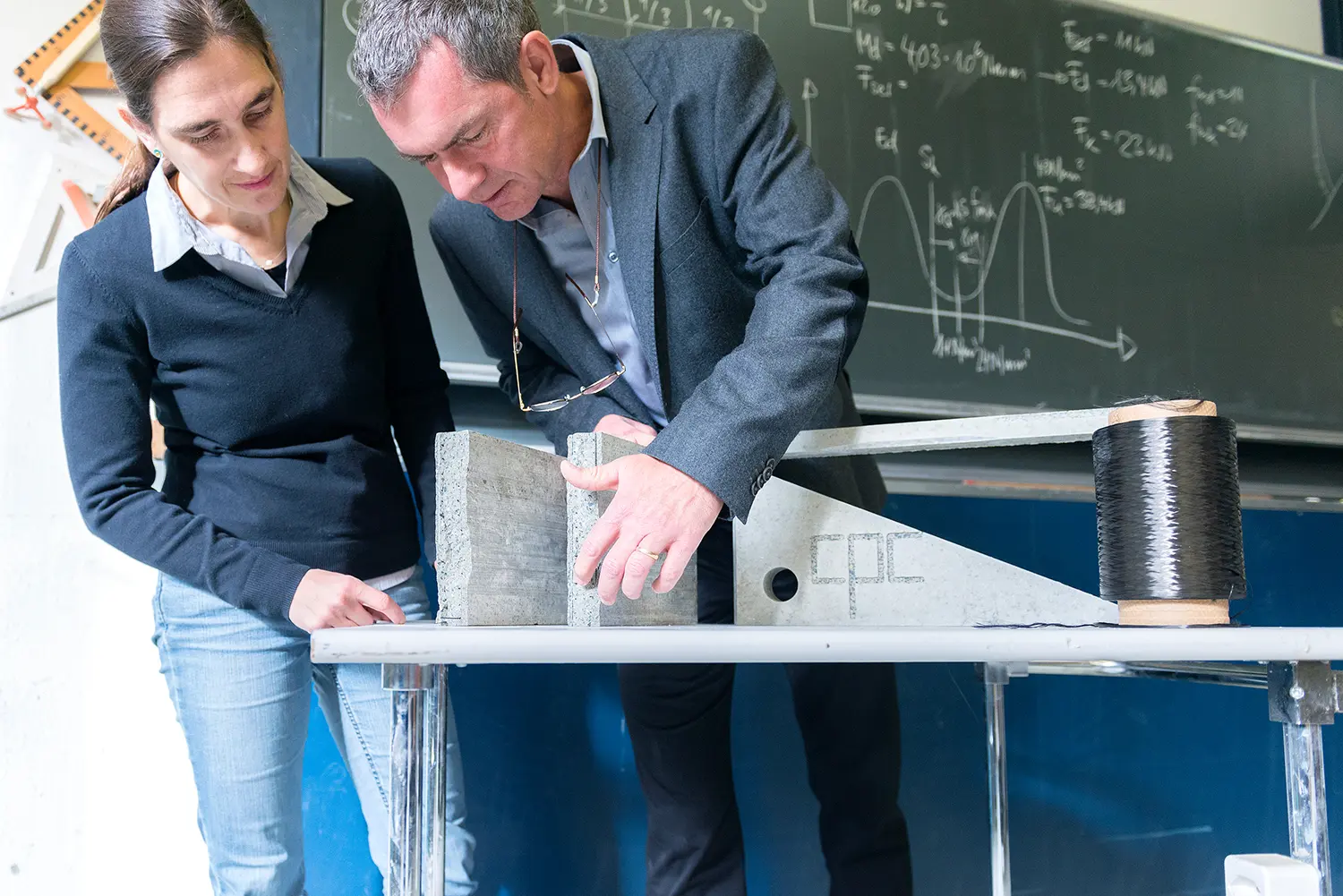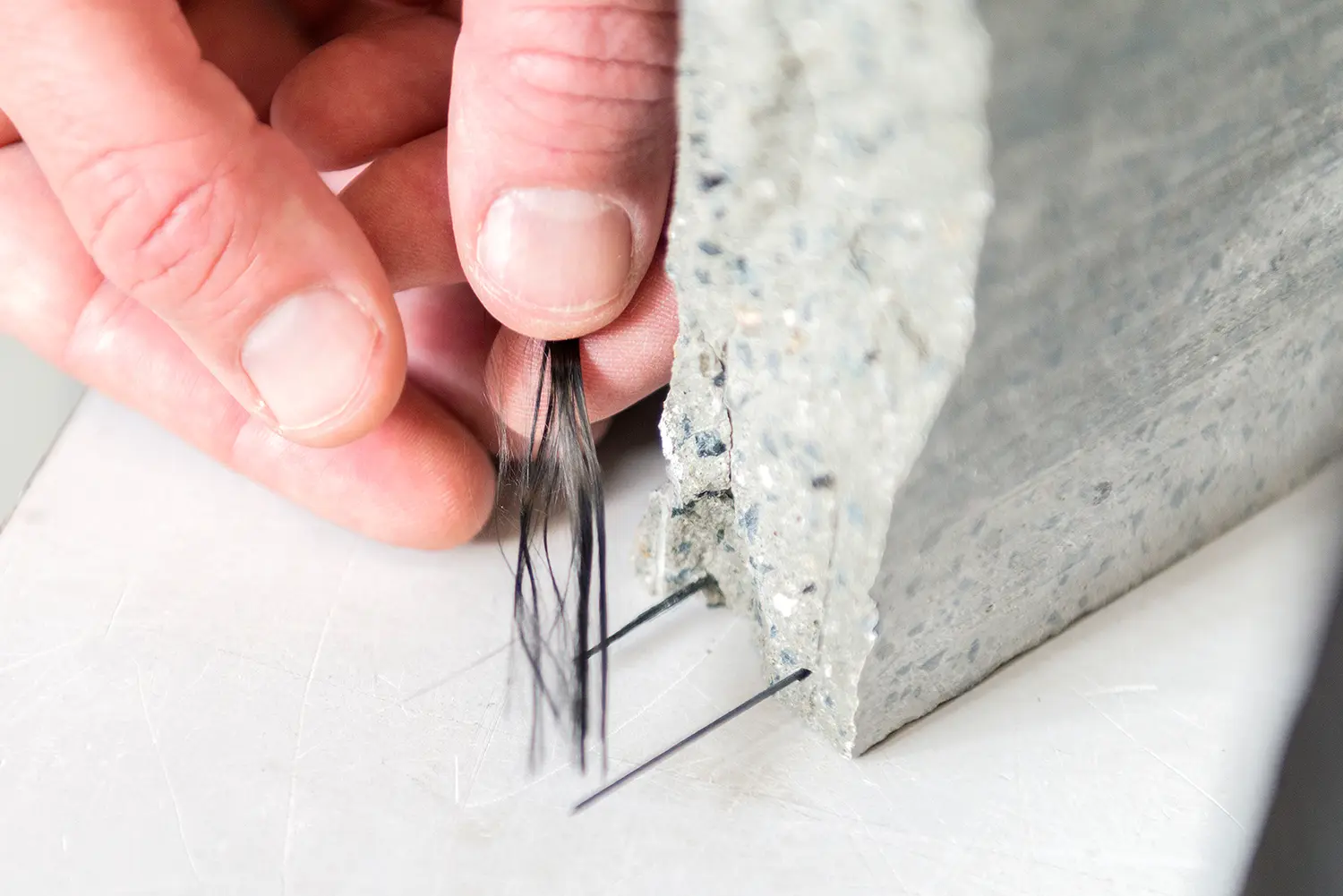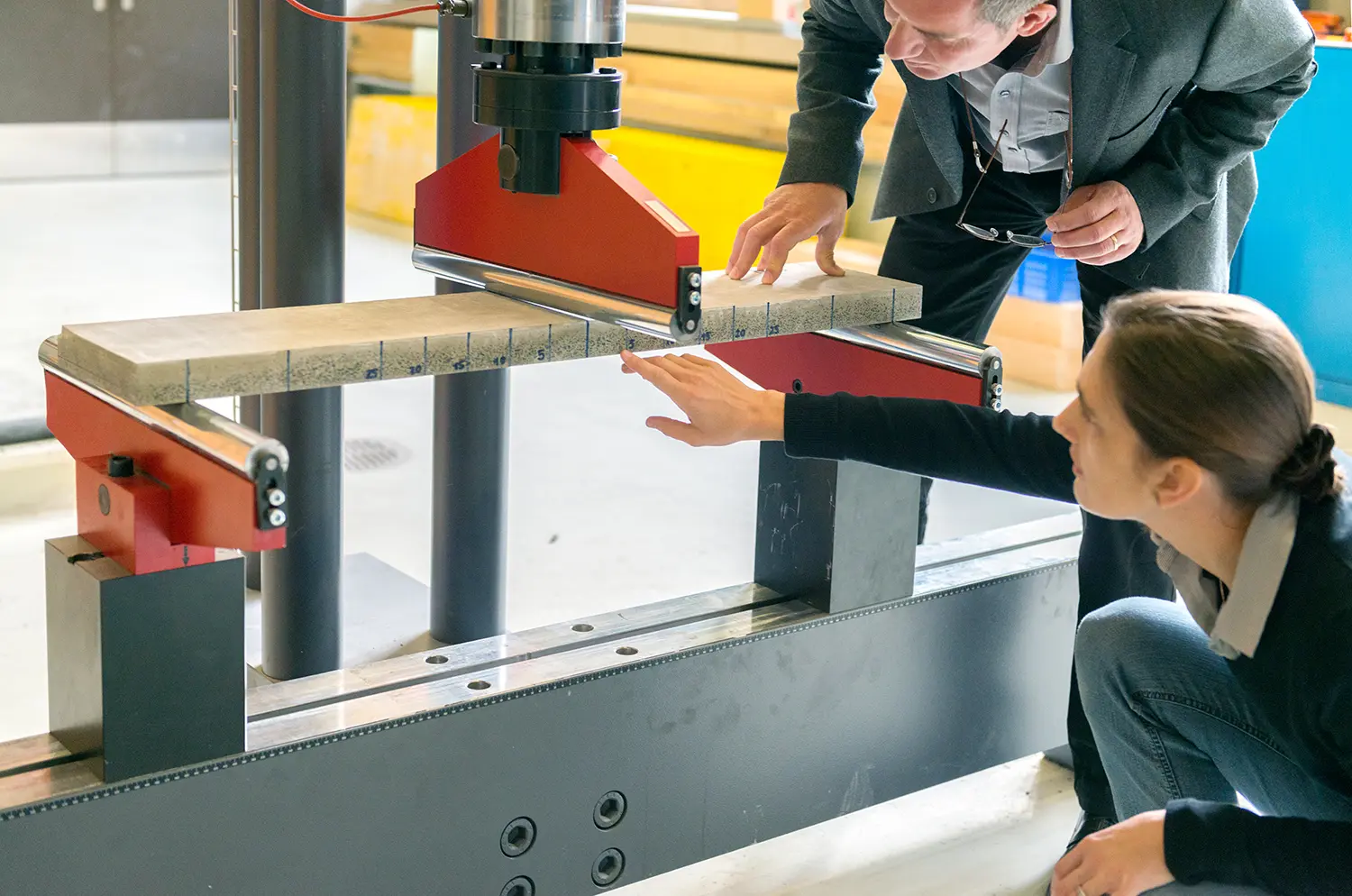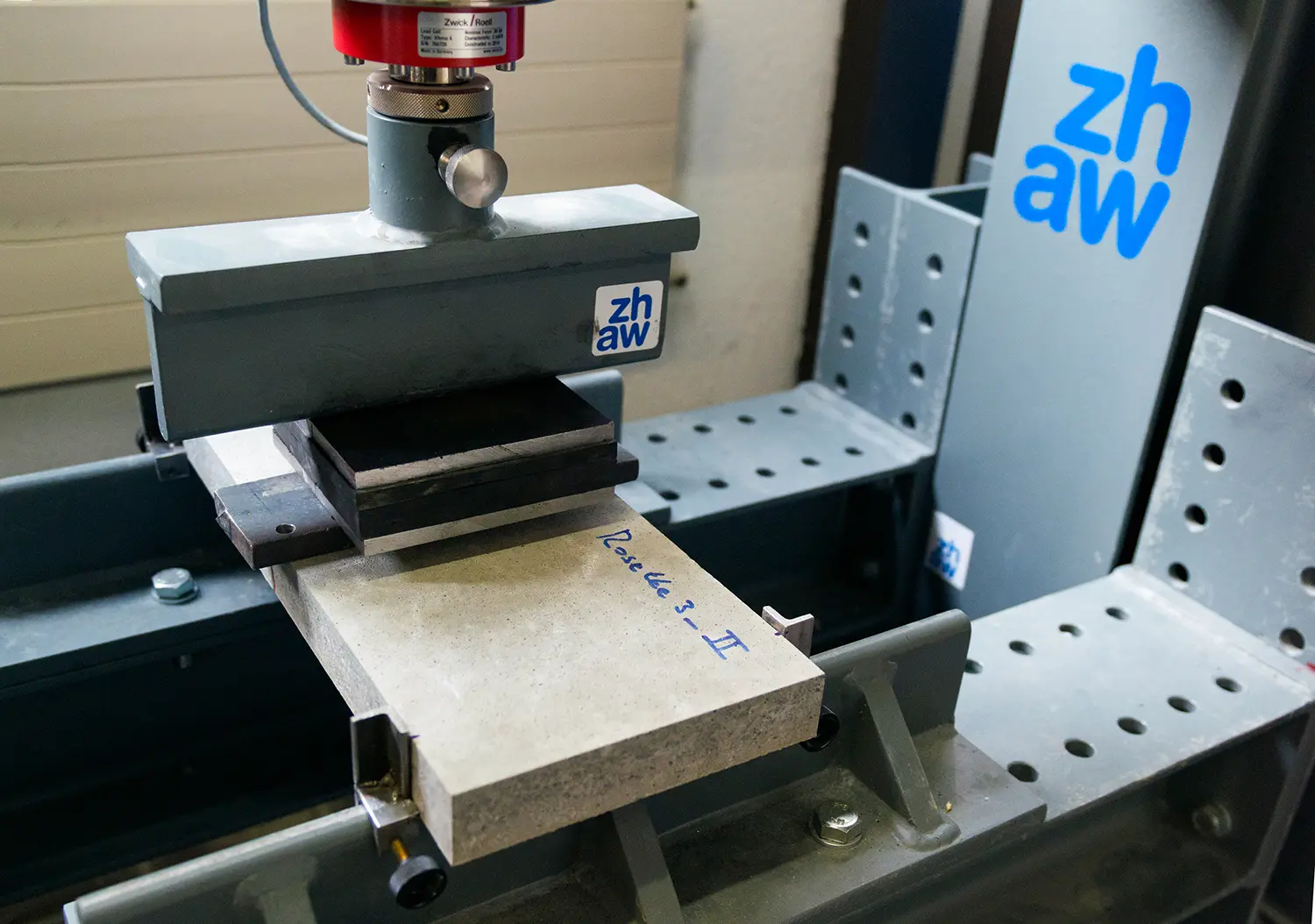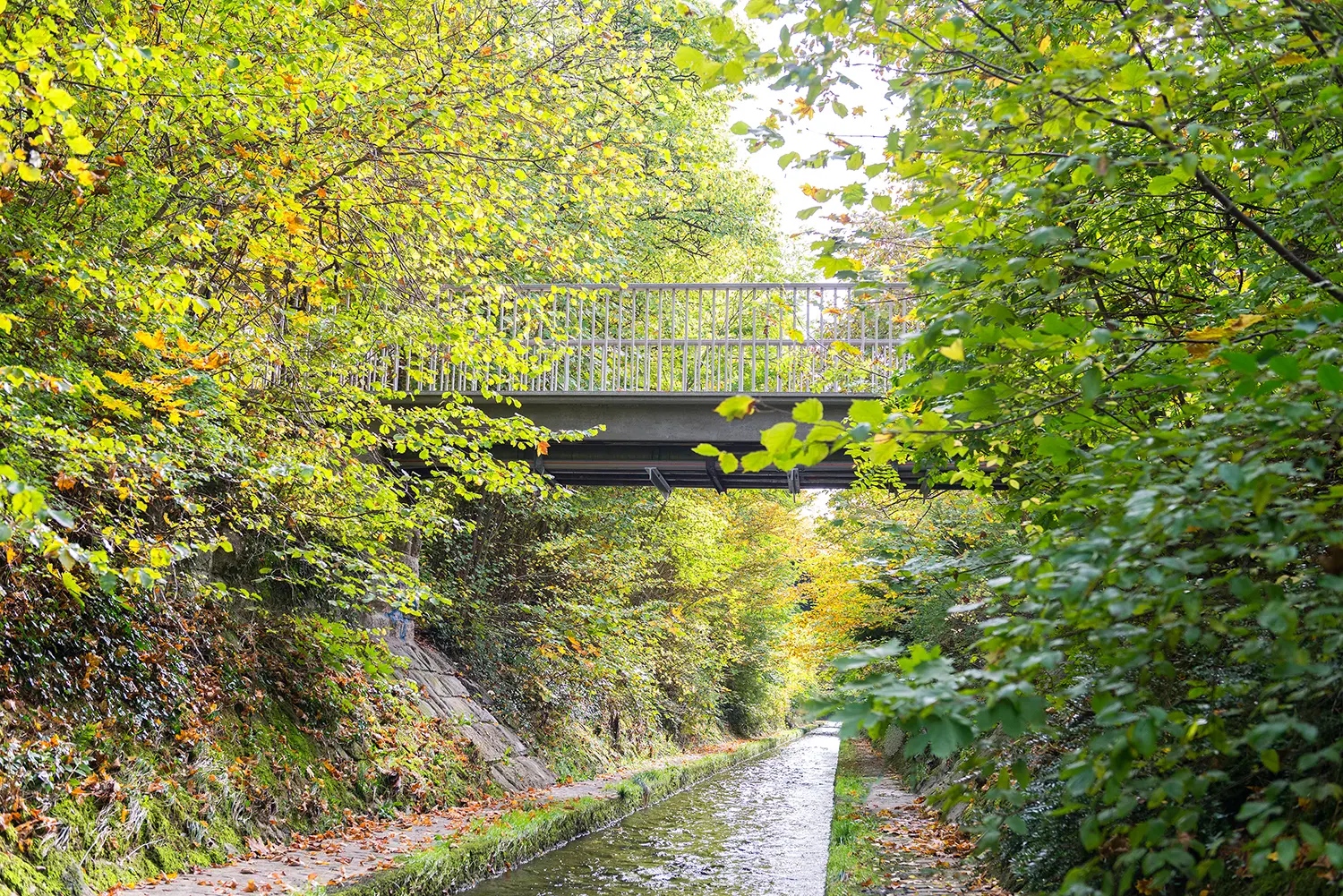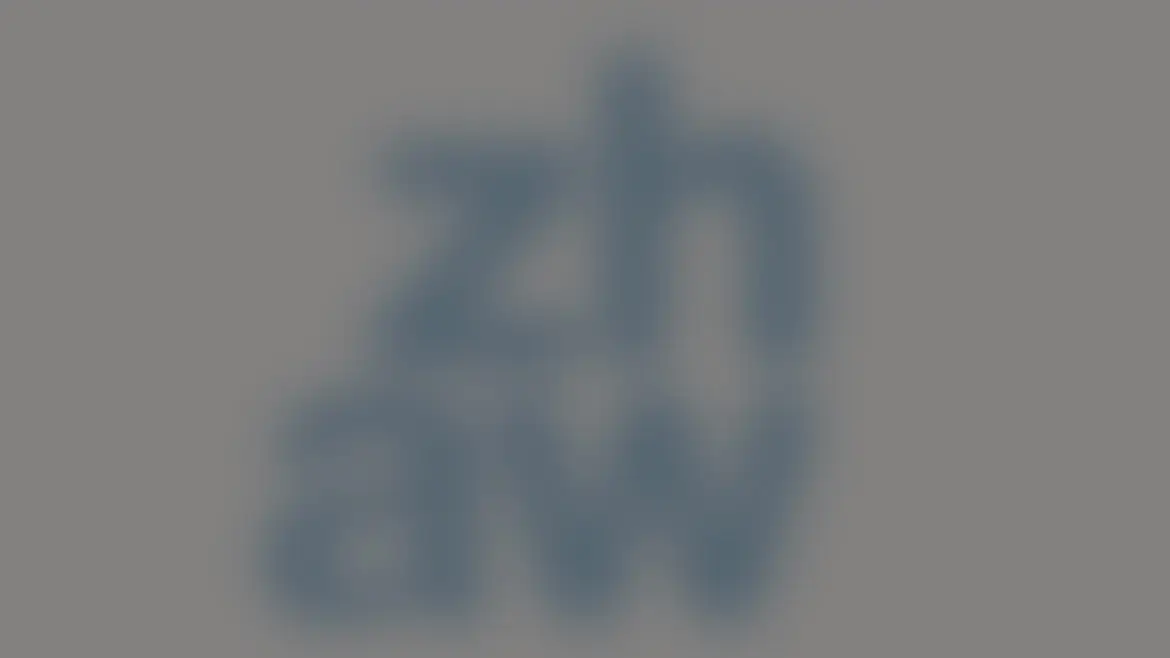Novel ultra-thin precast concrete panels with carbon
ZHAW engineers have developed concrete panels reinforced with carbon. These are not only extremely sturdy, light and rust-proof, but they can also be produced industrially and cut to any shape. They have recently been awarded with a German industrial innovation prize.
For several years, engineers have been researching how steel reinforcement in concrete could be replaced with carbon. Carbon is ten times stronger and five times lighter than reinforcement steel. Researchers have experimented with casting slack carbon fibres, nets or rods into concrete. However, in combination with concrete, the excellent characteristics of carbon only come into effect if the carbon is prestressed when it is cast. ZHAW construction engineers have now achieved this in a KTI research project. In collaboration with industry partner Silidur AG, they developed high-tech concrete panels that are reinforced with prestressed carbon. These CPC (Carbon Prestressed Concrete) panels are not only extremely sturdy, light and rust-proof, but they can also be produced industrially and cut to any shape. Moreover, their production puts up to 75 percent less stress on the environment than that of steel-reinforced concrete. And since the new construction method uses 90 percent less carbon than conventional carbon concrete panels, it is as economical as steel-reinforced concrete despite the high cost of carbon.
Award for high-tech carbon concrete panels
At the International Composites Congress in Stuttgart this autumn, the ZHAW researchers received the AVK Innovation Award in the category “Products and applications” for their light CPC panels. This award is given every year by the Industrievereinigung Verstärkte Kunststoffe (AVK). “Four carbon fibre cables could carry the weight of a car, but as soon as they are stressed laterally or joined together, they break immediately”, says Josef Kurath, head of the ZHAW’s research group for fibre-reinforced plastics. “This is why prestressed carbon fibres and concrete complement each other perfectly. Carbon absorbs the tensile forces and concrete absorbs pressure and lateral forces.” Moreover, while conventionally reinforced concrete panels develop cracks, the CPC panels spring back undamaged.
The greatest potential which Kurath sees in the newly developed CPC panels, however, is that they can be produced industrially and cut to any size, and that they don’t rust. Finally, since the concrete panels can be made much thinner without reinforcement steel, valuable resources such as water and sand can be saved and energy consumption reduced.
For one thing, these thin panels offer architects entirely new design possibilities, as they can be cut to any shape at all – with millimetre precision thanks to CNC (Computerised Numerical Control) machines using digital data. Apart from that, time can be saved on the construction site, as semi-finished carbon concrete products can be produced industrially, saving the time-consuming reinforcement work on site. “Besides use in new structures, they are also very well suited to the renovation of existing structures, enabling their lifespan to be extended considerably”, says ZHAW researcher Antje Sydow. For example, a bicycle bridge in Winterthur has recently been renovated with a CPC panel. Specifically, it was done with an almost eight-metre-long panel that is only four centimetres thick. Glued firmly to the supporting frame underneath, it carries the handrails and all the payloads. No additional coating is needed. With a total weight of 3200 kilogrammes, the delicate carbon concrete bridge weighs about five times less than a conventional structure. “That makes it the lightest concrete bridge in the world”, says Sydow. “What’s more, it’s rust-proof, which is an important issue in bridge construction.”
Downloads
- Image: researchers examining carbon concrete panel (JPG 1.30 MB)
- Image: carbon concrete panel close-up (JPG 0.98 MB)
- Image: carbon concrete panel breaking test (JPG 1.20 MB)
- Image: carbon concrete panel elasticity test (JPG 1.23 MB)
- Image: world's lightest concrete bridge in Winterthur (JPG 2.80 MB)
- Image: lightest concrete bridge diagonal (JPG 2.13 MB)
- Image: carbon concrete panel breaking (JPG 900 kB)
Contact
Prof. Josef Kurath, head of fibre-reinforced plastics research group, ZHAW School of Architecture, Design and Civil Engineering, phone: 058 934 77 73, e-mail: josef.kurath@zhaw.ch
Manuel Martin, ZHAW Corporate Communications, phone: 058 934 75 75, e-mail medien@zhaw.ch
